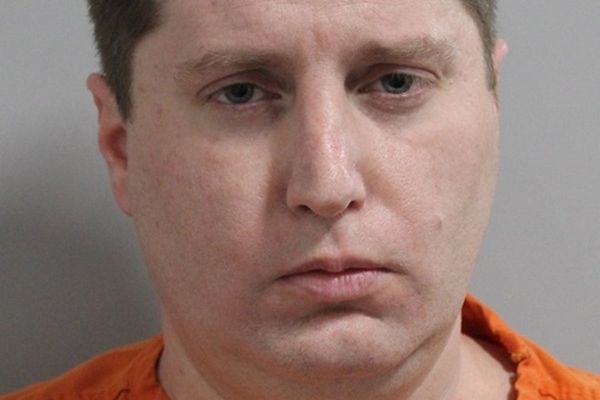
Will democracy survive a second Trump presidency? A change of senior personnel at a social media company involving a former British deputy prime minister may not seem all too relevant to this heated discussion. But Nick Clegg’s decision to leave Meta as head of global affairs, and the choice of his successor, may point to how western democracy dies: not with fireworks, but through quiet attrition.
Clegg’s job will be taken over by his deputy, Joel Kaplan – a Republican who worked in George W Bush’s administration. He is someone who, according to a Washington Post report from 2020, pushed to block Meta taking action against “dozens of pages that had peddled false news reports” before the 2020 election, arguing it would “disproportionately affect conservatives”. As a columnist at MSNBC put it, his elevation is another sign that Meta is getting a “Maga-friendly makeover”.
Meta matters: 33% of Americans say they regularly get their news from Facebook, and 20% from Instagram. Trump, meanwhile, has portrayed Mark Zuckerberg as a threat, accusing him of plotting against him in the 2020 presidential election and threatening in his recent book, Save America, that he would “spend the rest of his life in prison” if he did it again. Now there’s been a change of tune. Zuckerberg dined with his would-be jailer at Mar-a-Lago; Trump’s spokesperson has since declared the tech mogul “wants to support the national renewal of America under President Trump’s leadership”.
What exactly will be the direction of Facebook’s content moderation? Clegg had appointed Meta’s Oversight Board, charged with moderating content, and one plugged-in market research company suggests Kaplan’s appointment “signals that Meta may reconsider its content moderation policies, especially those related to political speech”.
X, formerly known as Twitter, has increasingly become a far-right cesspit under Elon Musk’s ownership, through changes to the algorithm – that is, which types of account get boosted the most. One study found that the site had a pro-Republican bias before the plutocrat endorsed Trump in July 2024, but that only accelerated afterwards.
You might say that a spectre is haunting US democracy – the spectre of Hungary. There, democracy was not overthrown by tanks in the streets, mass arrests or paramilitary violence. The country’s leader, Viktor Orbán, once described himself as an “agnostic liberal”, and his Fidesz party seemingly belonged to the conventional centre right. But, in office, it marched off to the far right, aggressively opposing migrants and LGBTQ+ rights. The constitutional court was filled with Orbán cheerleaders, electoral boundaries were favourably redrawn, civil servants purged and laws targeting civil society culminated with a so-called Protection of National Sovereignty Act, threatening fines and imprisonment for anyone judged to be under foreign influence.
What happened to Hungary’s media is instructive. Media outlets weren’t censored, but the regime placed the state broadcaster under the control of loyalists, with dissidents denouncing it as a “propaganda machine”. Business people close to Orbán simply bought up media organisations, which then ensured their editorial position aligned with the government’s. That has now escalated to crackdowns under the new sovereignty law. You could call this process Orbánisation.
Let’s now look again at the US. One of the two main social media giants, X, has become a Trumpian propaganda machine, the other is clearly cowed. Trump has begun to sue media organisations, declaring he wants to “straighten out the press”, and Musk is threatening the same. This result is likely to be a chilling effect – combined with the prospect of self-censorship. Even before the election, the Washington Post and the Los Angeles Times declined to endorse a candidate, a decision that was widely believed to be driven by fear of retribution. What action could be taken against media organisations when Trump’s allies have the state machinery? Well, pretexts for vexatious investigations and prosecutions may follow.
What Hungary tells us is that you can hollow out the substance of democracy by other means than violence. Some might object to this comparison, pointing to far weaker democratic traditions in Hungary compared with the US. This is true, but I raise you the fact that Trump – not least his current iteration – is significantly more extreme than Orbán. Hungary’s autocrat may speak of an “illiberal democracy”, but Trump has threatened to prosecute or punish perceived opponents more than 100 times since 2022, when he began preparing for the presidential campaign, and more US voters than not did not regard that as disqualifying. His pick for FBI director, Kash Patel, has even drawn up what critics call an “enemies list”. This more extreme Trump enjoys majorities in both houses and the supreme court. And what will happen if there is a crisis during his presidency, such as a big terrorist attack or turbulent protests? During Black Lives Matter protests after the murder of George Floyd, Trump’s desire to send in the military was overruled: will the same happen this time?
Perhaps not. Perhaps even a desperately flawed democratic system will keep what several former Trump advisers describe as his “fascist” sympathies at bay. But the threat of a slow and insidious Orbánisation is real. Democracy will not suddenly collapse: it may simply silently retreat, behind the scenes, until it is too late to notice.
Owen Jones is a Guardian columnist







